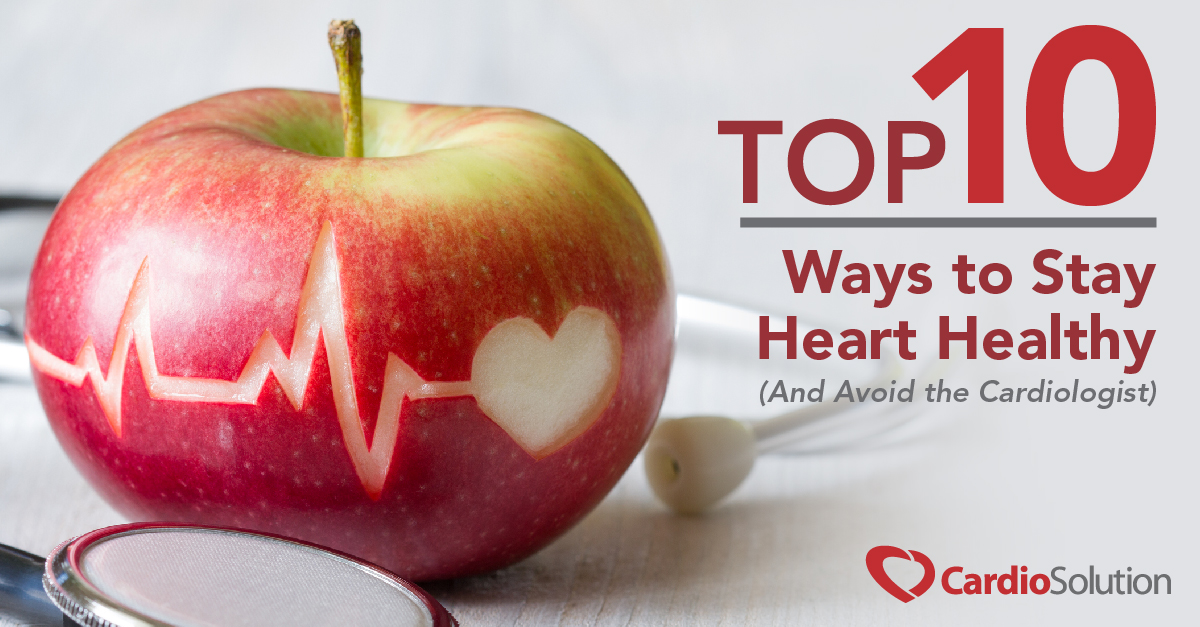
Top 10 Ways to Stay Heart Healthy (And Avoid the Cardiologist)
February is American Heart Month and it’s the perfect time to focus on our own heart health as well as that of our loved ones. Heart disease is the leading cause of death in the United States, with 697,000 deaths in 2020 alone, accounting for 1 in 5 deaths.
According to the Centers for Disease Control and Prevention (CDC), death rates from heart disease are also higher in rural areas than in urban areas. This is due in part to a lack of access to preventive care, screenings, and treatments.
Rural communities often have a shortage of healthcare providers and facilities, making it difficult for residents to receive the care they need. This is especially true for emergency cardiac care, where seconds can mean the difference between life and death.
During American Heart Month, we encourage everyone to take steps to improve their heart health. While there is no magic pill to cure heart disease, there are ways to help combat the disease and improve our heart health. Dr. Brad Serwer, Interventional Cardiologist and Chief Medical Officer at CardioSolution, provides his top 10 ways to stay heart healthy during American Heart Month and beyond.
- Watch what you eat and avoid fried, fast, and fatty foods. Fad diets may promise quick weight loss, but they almost always result in rebound weight gain. The goal is to make lifestyle changes, not to “diet.”
- Increase your dietary fiber by incorporating whole grains, fresh fruits, and vegetables into your diet. Studies have shown that the best cardiac outcomes are linked to plant-based diets. While a vegan diet may not be easy, it has the potential to reverse underlying coronary artery disease.
- Stay well hydrated by drinking non-caffeinated and non-alcoholic fluids, ideally 64 oz of water per day.
- Stay active. Engage in 150 minutes of aerobic exercise per week. This can be achieved by doing 30 minutes of aerobic exercise, five times per week and alternating with core and strengthening exercises. Setting an exercise goal, writing it down, and sharing it with friends and family will increase the likelihood of success.
- Focus on ways to reduce stress. While it may be impossible to avoid stress altogether, focus on what is within your control and how you address it. Consider meditation, yoga, or deep breathing as ways to reduce stress.
- Avoid tobacco, both direct and secondhand smoke.
- Moderate or abstain from alcohol. Some studies have shown that one glass of red wine may have health benefits, but if you have a history of alcohol abuse or don’t drink, it’s best not to start.
- Know your numbers. Check your blood pressure periodically and know your cholesterol levels. Knowledge is key when it comes to understanding your heart health.
- Know your genes. Speak with family and know what cardiac conditions they have. You can’t pick your genes, but you can be aware of them.
- Schedule regular visits with your medical provider(s) and stay on top of any chronic medical conditions. Take your medicine as directed and know what and how much you are taking.
By following these tips, we can all take steps to improve our heart health during American Heart Month and throughout the year. Remember, it’s never too late to make changes that can positively impact our heart health.
Additionally, it’s important to mention that if you have any symptoms of heart disease or any other concern, it’s important to consult with a medical professional as soon as possible.
To learn more about cardiovascular health, visit the American Heart Association.

 company
company 
 (866) 755-7519
(866) 755-7519












